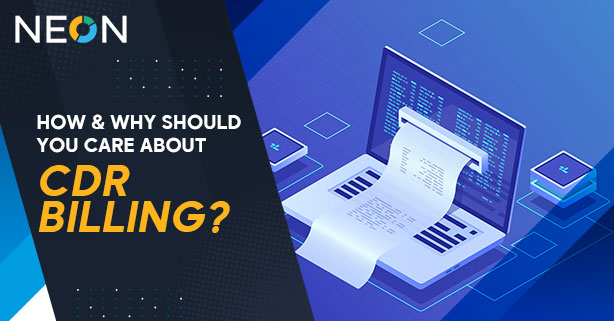How & Why Should You Care About CDR Billing?
What is CDR (Call Detail Record)?
CDR is probably unfamiliar to you if you're not in the telecom industry. The good news is, that it won't be long before the rest of the world is familiar with it. CDR billing is considered by many experts to be one of the greatest innovations ever to transpire in the telecom industry.
A record of detail of a call traveling through a network between A and B is referred to as a call detail record (CDR). Assuming A is the origin and B is the destination, a call detail record contains information about the call. There can be several hops between A and B, where a call may be routed from one location to another.
The letters C, D, E, and F represent these transfers. CDR data will give you detailed information about each call, such as the start time, end time, duration, etc., so here's what you need if you want to know how much your company has spent on calls over the past month or year.
Why does CDR Billing matter?
A CDR (or call detail record) is a billing method that telecom companies use to compensate for business services. Basically, CDR billing means service providers are charged based on how many minutes their customers are spending on phone calls or data sessions.
It can be measured in usage minutes or in airtime minutes, which are typically rounded up to the nearest whole minute when provided to end-users. Changing your mobile plan can affect both your mobile bills and your fixed-line telephone bills.
Some people may not even realize they're paying for minutes used at all when they look at their monthly bill; it can be confusing. Let's explore what CDR billing System is all about and why you, as a consumer or small business owner, should care.
Describe the main differences between telecom billing services
Hosted billing systems and on-premise billing systems are the two main types of telecom billing systems. Providers such as NICE Systems provide hosted telecom systems, which are managed by third parties. They handle network integration, installation, maintenance, and customer support, so you can focus on selling services.
On-premises systems require you to hire an IT expert to maintain them, they give you more control over data storage but require you to lease or buy the necessary hardware from a provider. There are most providers that offer both options, based on what is best for your company.
How to keep track of your telecom billings?
If you want to track billing and revenue, opt for specialized telecom billing software instead of a spreadsheet. Using CDR billing software, you will be able to track complex metrics, such as usage patterns and revenue from multiple sources, enabling you to develop sophisticated pricing plans.
Free trials of telecom billing software are offered by many providers so that you can decide whether the software is right for you before purchasing it. You can also find templates on the Web or create your own by building a spreadsheet with advanced formulas if you don't want to invest in software. But these things aren't a replacement for proper billing software.
Final Thoughts
We explore the concept of CDR billing in this blog and explain why it can be better than traditional means of bill collection in some instances. We explain how it works, why it's beneficial, and when it may be a better choice in certain scenarios. Having trouble understanding CDR billing? Share your thoughts! We would love to hear from you.



Comments
Post a Comment